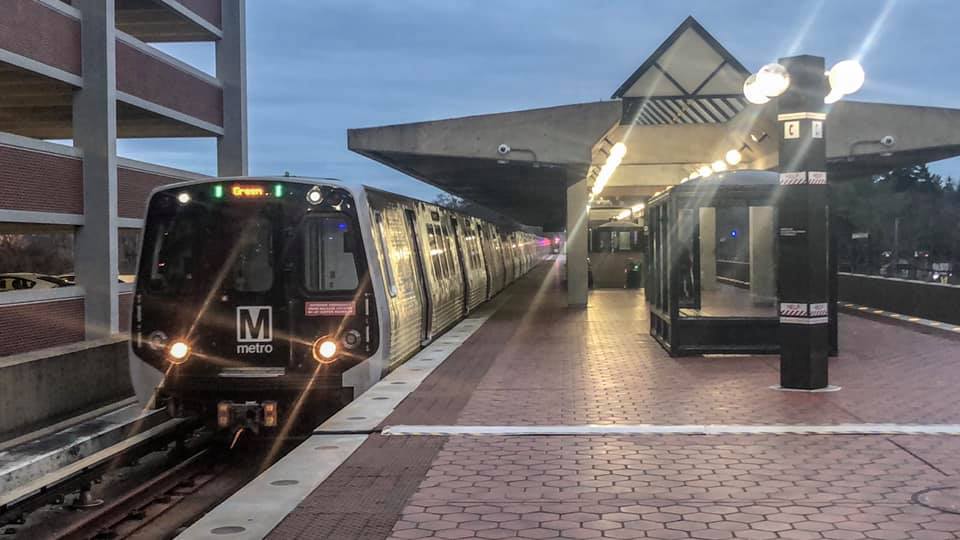
The Washington Metropolitan Area Transit Authority’s proposed financial 2022 spending plan could dispense with numerous transport courses along Route 1, confounding travel for University of Maryland understudies and city occupants in the territory.
The proposed spending plan would end the 86 Metrobus to University Park’s Whole Foods Market and the C2 to Greenbelt’s Giant Food, leaving riders with the 83 Metrobus and few different choices.
In a virtual gathering Friday, WMATA’s account and capital board of trustees met to talk about the fate of travel in the Washington, D.C., metropolitan district. The 19 stations that initially shut in March and the greater part of transport courses over the locale are in peril.
The financial plan additionally calls for Metrorail to take out end of the week rail support and work at 20% of pre-pandemic levels, which would make end of the week trips from College Park to D.C. testing.
Steve McMillin, seat of the board, said that WMATA’s financial viewpoint is driven by the emotional reductions in traveler traffic and passage income that came in the midst of the pandemic.
“The impacts of that reduced fare revenue have been mitigated, somewhat, this year with the help of federal dollars,” McMillin said. “However, we have no ability to plan on any continued assistance at this point.”
WMATA is proposing a help plan that empowers fundamental travel as the locale recuperates however financial plans for a slow return of ridership one year from now.
The proposition accepts that Metro will arrive at 34 percent of pre-pandemic ridership levels in the impending monetary year, which starts in July.
“We have come up with a plan that is going to be tough medicine for many of our stakeholders,” McMillin said. “But we have a responsibility to budget with the dollars that we have available and provide the most logical and meaningful service that we can within those constraints.”
Workers will confront cutbacks and compensation and pay freezes, while riders will see fundamentally diminished assistance and Metro will request that wards keep up their responsibilities.
Contrasted with administration changes in Virginia and Washington, D.C., Prince George’s County will endure the worst part of this round of administration cuts.
Maryland Secretary of Transportation Greg Slater said that current conditions are more testing to explore than the Great Recession. He said he is stressed over cutbacks, network and the detachment of zero-vehicle families in territories like Bowie, Suitland and Largo.
Around 65 percent of WMATA’s labor force are Maryland inhabitants, and around 48 percent of the absolute labor force are from Prince George’s County, Slater said.
“We’re very concerned about the layoffs having a disproportional effect,” Slater said.
Slater said he trusts the government hears the public transportation industry’s interests and considers public travel in any help bundles since genuine individuals will feel the impacts.
All things considered, others are stressed that cutbacks won’t sufficiently be to compensate for the financing hole.
Metro Board Member Matt Letourneau likewise said he doesn’t share the idealism others have about Congress’ capacity to convey alleviation rapidly.
“Nobody likes these changes. Nobody is in favor of this,” he said. “But unfortunately, this is not SimCity and we can’t just print money and assume money that is not there.”
As indicated by Paul Wiedefeld, WMATA head supervisor, the proposed administration plan for monetary year 2022 still leaves it with an extended financing hole of $494.5 million.
“Every cut is just as painful,” Wiedefeld said. “We try to serve as many people as we could where we’ve seen demand high and/or where we see facilities that need to be served, for instance like hospitals and areas that have no rail service.”
WMATA will modify the spending plan with changes in conditions or subsidizing, and in counsel with riders, representatives and contributing purviews.
Transport ridership is beginning to improve, yet rail ridership — which makes up 80% of WMATA income — isn’t recuperating.
Stephanie Gidigbi, first bad habit seat of the board, said for the current year has daylighted the things they have deliberately ignored on before.
This is an occasion to give another vision to the framework, she said.
Considering the proposed administration cuts, Gidigbi figures working hours should be more adaptable for individuals to get places around evening time and on the ends of the week.
“Some things are worth preserving, because Metro truly is an economic engine for this region,” Gidigbi said.

Alesa was born in Tuskegee Albama and educated at Kent state University. She is making a BIG name for himself & becoming highly credible. She worked as a manager for the global marketing department.
Disclaimer: The views, suggestions, and opinions expressed here are the sole responsibility of the experts. No journalist was involved in the writing and production of this article.

